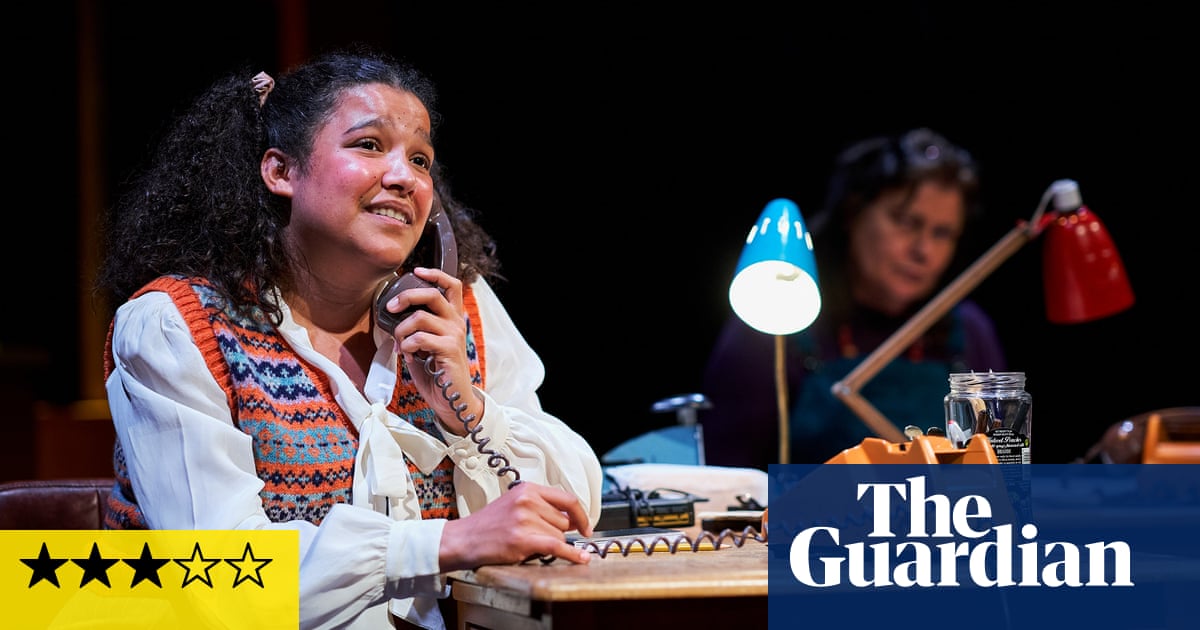This entertaining debut by Harry Mould alights on a curious historical detail. As part of its commitment to listen to everyone without judgment, the Samaritans used to keep its lines open to what it referred to as “telephone masturbators”. Between 1972 and 1987, any man who called the service asking for Brenda knew he would find a woman willing to hear out his sexual fantasies.
The policy raises so many questions – about sex, danger, exploitation, acceptance and what constitutes a cry for help – all of which Mould weaves into a sparky two-hander. It is one that recognises the absurdity of the situation without diminishing the role of a life-saving charity.
Designer Natalie Fern brings out the Formica, dungarees and orange floor tiles as two women settle in for a night shift in the early 1970s. Anne (Fiona Bruce) is the designated Brenda, a long-serving volunteer who has learned to tolerate the indecent calls and has even become concerned about a regular called Daniel. Tonight he has not phoned at his usual time and she is alarmed.
New girl Karen (Charlotte Grayson) calls him a “punctual pervert”. At 18, she is the youngest volunteer in the Samaritans and fizzes with feminist zeal. As she sees it, Anne is “playing an active role in the subjugation of women”. She is righteous and fervent, but behind her youthful certainty, she has limitations of her own – as her rookie handling of sensitive calls demonstrates.
In Ben Occhipinti’s well-paced production, Mould judges neither. Rather, the playwright explores the women’s reasons for volunteering, their need to find a place to belong and be wanted. The loneliness and isolation of their callers is not so far from their own. For all the sexual frankness, it is a sweet comedy about acceptance and making all of us feel human.












